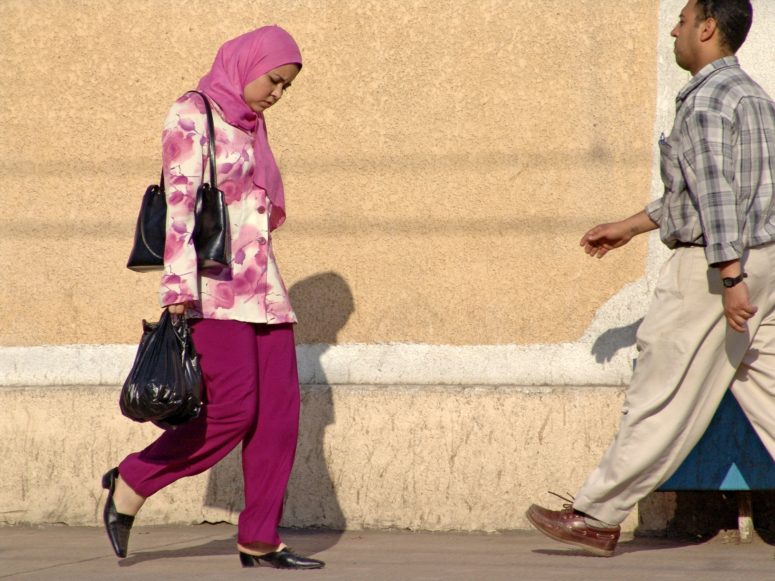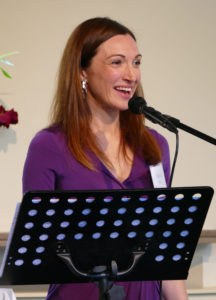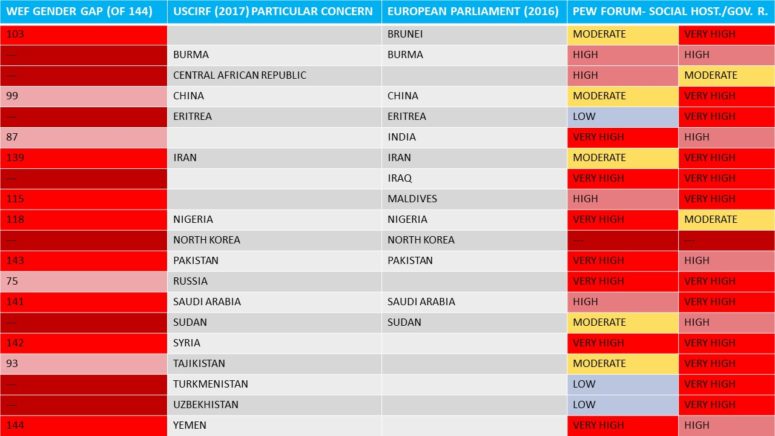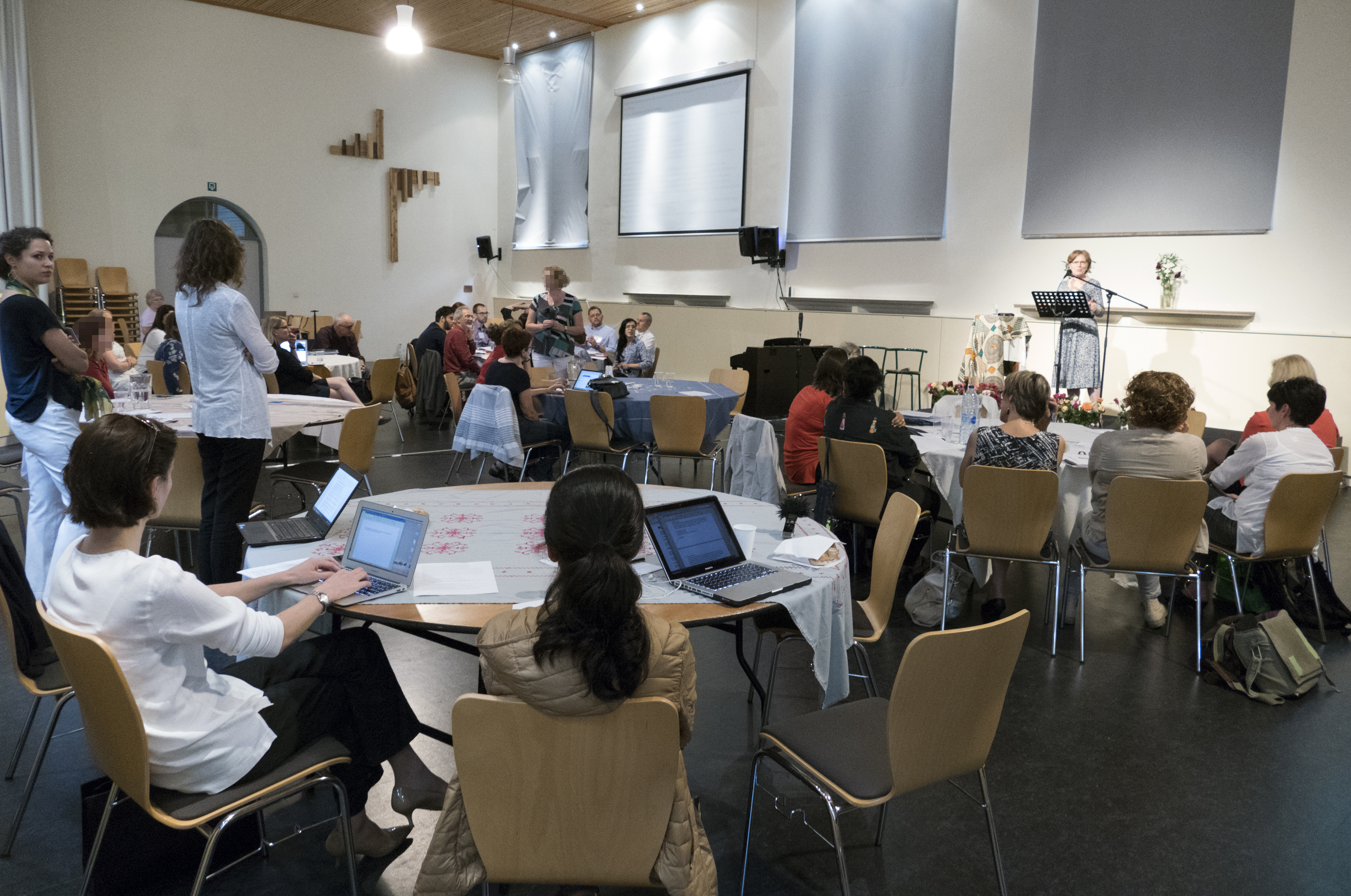
The Archbishop of Canterbury, Justin Welby, has said that sometimes “[religiously] conservative attitudes are a passport for misogyny, while at other times they are simply inherited attitudes”.
His comment came two days after a consultation about Christian women under pressure for their faith, where speakers noted that women living in highly patriarchal societies often have less religious freedom.
Asked on BBC radio on Monday (5 June) about segregation of men and women in places of worship, and whether there might be an element of misogyny in culturally conservative Islam, the Archbishop said that this could not be concluded, as the reason for segregation might vary. “Is it simply a hold-over from a cultural past or is it something that says we can treat women as less valuable … than men?” he said.
Doubly vulnerable
The question of culture, religion and the position of women surfaced during the international consultation held in Leuven, Belgium, last week. More than 50 NGO practitioners, academics, legal experts, trauma counsellors and community development experts from 23 countries learnt how, under pressure for their faith, Christian women are persecuted in the same ways as men but are doubly vulnerable: because of their gender, as well as their faith.
Women are often subject to discrimination and rejection due to social, legal and cultural norms, inside and outside the Church. For example, kidnapped Christians who are raped can, on return, sometimes be ostracised by their communities in an “honour and shame” culture.

Dr Susan Kerr, EU Advocacy Officer for Christian Solidarity Worldwide, said that sometimes it is difficult to draw a clear line between whether attitudes are cultural or religious. As for gender issues, more often than not, the two are intertwined, she said.
For example, her research into gender and freedom of religion or belief (FoRB for short) indicated that there seems to be a connection between patriarchal societies and FoRB abuses. She drew parallels between the countries noted by the World Economic Forum as having substantial gender gaps, and those which scored high in FoRB reports. “The existence of this link suggests that women are particularly vulnerable to serious FoRB violations, given their lesser social capital in societies in which they are assigned subordinate gender roles to men. In this context, I posit that FoRB-based discrimination can integrate gender-targeted components. Be they structural, physical, psychological or cultural, direct or indirect, these emerge not only from current religious difference, but from deeply-rooted norms and practices about how women should be treated,” she said, adding that “this understanding of multiple discrimination is important in understanding the root causes of oppression”.

Dr Kerr added: “We see the weaponisation of the woman’s body as a means of sending a message to a religious community. Why did Boko Haram kidnap young girls in Nigeria? The violence perpetrated against those girls was a message to send fear to their community.”
Discrimination and violence
The Leuven Consultation heard that 215 million Christians experience high, very high or extreme persecution in more than 50 countries. And women suffer disproportionately, said Kate Ward* of Release International, one of the conference organisers. “Women make up more than half the Church. They are doubly vulnerable to discrimination and violence. Yet, all too often, their voices are not heard. They are silent,” she said.
Christian women face many forms of discrimination and violence. These can include restrictions on freedom of dress and movement, employment and legal discrimination, false charges, reprisals for conversion, sexual harassment, forced marriage, kidnapping, rape and other forms of sexual violence, including human trafficking.
Sometimes they suffer violence at the hands of their own families or church leaders who condone, collude and even perpetrate such acts due to their theological interpretations and understanding of male/female relationships.
Islamist extremists also target wives and daughters as a way of intimidating and demoralising Christian pastors, most of whom are male, in areas of religious conflict.
Kidnapped
A Coptic Christian from Egypt at the consultation told the story of 15-year-old Amira, who disappeared when her mother sent her on an errand during a church service. She was kidnapped and became one of the hundreds of Coptic girls who have disappeared in the last six years.
Although last year Pakistan’s largest province of Punjab adopted a law making sexual harassment an offence, this does not immediately solve the problem of violence and other forms of abuse of girls and women in the country, said Katherine Sapna, director of a local NGO.

A Pakistani herself, she explained that girls often don’t want to talk and families don’t stand up against the abuse that is happening because they are afraid, the honour of the family is at stake, or they accept abuse as a part of their culture.
It is partly for this reason that statistics are hard to find, but, according to Sapna, 68% of Pakistani women and girls experience sexual harassment. It’s believed that many women and girls never report their abuse.
Sapna said Christian women in Pakistan are the most vulnerable members of their society. Under Sharia (Islamic law) the legal evidence of a woman is worth only half that of a man, and in certain cases the evidence of a Christian is worth half that of a Muslim.
“This can leave the non-Muslim woman without a means of defence in court,” said legal specialist Olivia Jackson. “And where you get the intersection of gender discrimination and persecution, gender-restrictive laws can be absolutely lethal to women.”
“The problem can seem overwhelming,” said Helene Fisher from Open Doors International, “But as Christians we have an extra path, which is to say, ‘I am here, listening to you as your sister in Christ, who loves you and cares for you and wants to know how to come alongside you. And when we establish that link, hearts open, because we are in that ultimate trust relationship, which is sitting as sisters together before our heavenly Father’.”
Driven to silence
The consultation, hosted by the Evangelical Theological Faculty in Leuven, followed a similar event held last year in Marcham (UK).
That was organised by groups including Open Doors International and Release International, and co-sponsored by the International Institute for Religious Freedom and the Religious Liberty Partnership.
“The message this year is that we must refuse to accept discrimination as a woman’s lot in life,” said Kate Ward. “It’s all too easy just to shrug and accept these cultural differences, to walk away and leave these women marginalised and alone. We will be producing a call to the global Church, a call to find new ways of listening to Christian women who have been driven to silence.”
Note: name changed for security